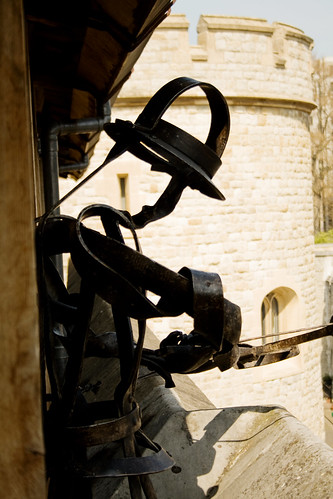A veil of fog hid Browning Hall from view. Disappointed tourists in brightly-coloured raincoats milled around on the lawn. They'd come early to avoid the crowds, but the English weather thwarted their plans to see the house in all its splendor with no people in the way.
Brenda Whitstaff weaved in and out of the throng, trying to usher her coach party into the house. They shooed her away, insisting that they wanted to see Browning's famous Palladian facade. The tourists looked this way and that, as if they expected the house to loom out of the fog.
It’ll be like something out of a Hammer flick if it does, thought Brenda.
"Excuse me? Excuse me? We want to see the house," said a rotund woman in green wellies. She pointed in the vague direction of the Hall.
"And indeed you can, Mrs Lazenby. But why not have a look inside the house while you wait for the fog to clear? They've got a fine collection of early Impressionist paintings, and they do lovely cake in the cafe," replied Brenda.
"We want to see the house," said the woman. Her mouth set in a firm line.
"Mummy! Look!" cried the little girl beside the woman. She tugged at her mother's sleeve.
All eyes followed the girl's finger. The swirling fog thinned over the lawn. Brenda made out a figure in the remaining mist. He was tall, wearing shiny knee high boots, and an enormous hat that was almost engulfed by the feather sweeping around its brim. A white collar spilled out of the fitted jacket that fell to mid-thigh. He leaned on a sword. Brenda could see the walled garden beyond the lawn if she looked through him.
"It's Charles I! It has to be!" exclaimed a woman to Brenda's right.
"No no no, Charles was a short man, very weak. This fellow is too tall," replied a red-haired man in plaid. He peered at the Cavalier over the top of his gold-rimmed glasses.
A second figure emerged from the mist, looming behind the Cavalier. Clad in full samurai armour, the newcomer raised a katana in a fighting stance that Brenda recognised from the movies. The samurai sprang forward. The Cavalier feigned surprise at the attack but swung his sword to meet the katana. The metal sang in the cool morning air. The samurai dipped and wove, his katana seemingly everywhere and nowhere at once. The Cavalier parried and thrust, the fresh sunlight glinting through his blade.
Silence fell among the tourists as they watched the battle. They stared with open mouths, unsure what to do. Some of them looked at Brenda, wondering if this was a new visitor experience put on by the owners of the Hall to boost numbers. She shook her head – this was new to her too.
The samurai lifted his arms to swing the katana in a killing stroke. The Cavalier darted forward, exploiting a tiny gap in the warrior’s armour. The Cavalier buried his sword up to the hilt. The samurai dropped his katana, wheeling around in a dizzy circle. Brenda saw the rest of the sword protruding from his back. The samurai dropped to his knees, and keeled over. The Cavalier looked down at his fallen opponent and bent to pull his sword free. The pair vanished from sight.
The tourists erupted in a clamour of questions and exclamations. Half of them crowded around Brenda for answers. The other half tottered around on the lawn, taking photographs and pointing at empty patches of grass.
* * *
"I say, old chap. Are you alright?" asked Fowlis Westerby. He stretched out a gloved hand to the samurai. The warrior accepted it, and clambered to his feet.
"Fine," replied the samurai.
"That was a most impressive show. Can't thank you enough."
"Is nothing. I won last time."
Fowlis chuckled, remembering their melodramatic duel in the ballroom at Chatsworth House. Then he remembered the sword through his gut and winced. The samurai might be the finest stunt actor in the afterlife, but he did get rather carried away.
"Until next time."
The samurai shook Fowlis' hand and winked out of sight, recalled to HQ for reassignment. Fowlis gazed across the lawn at the tourists, still gawping and snapping photos of thin air. He chuckled again. The story of a seventeenth century Cavalier and a seventh century Samurai having a fight to the death on the lawn of a nineteenth century manor would be all over the Internet by tea time.
That's sure to win me the title again, thought Fowlis.
He straightened his hat before he disappeared, bound for HQ.
* * *
This marks the third flash fiction outing of my Cavalier ghost, Fowlis Westerby. He's the star of his own supernatural YA novel, currently in the redraft stage. You can enjoy his other adventures here - First Impressions and The Priest Hole.












